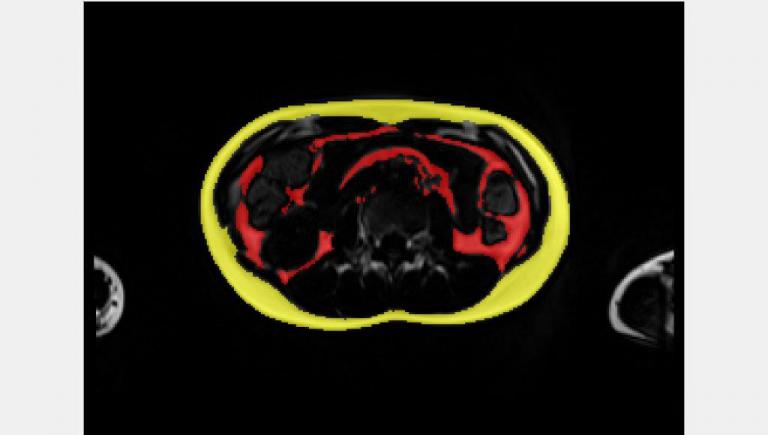Research Highlights
Publication Highlights
Allen AM, Lundeen K, Murphy SE, Spector L, Harlow BL. Web-Delivered Multimedia Training Materials for the Self-Collection of Dried Blood Spots: A Formative Project. JMIR Preprints. 10/05/2018:11025 DOI: 10.2196/preprints.11025
Allen, A., Vogel, R. I., Meier, E., Anderson, A., Jensen, J., Severson, H. H., & Hatsukami, D. (2016). Gender differences in snus versus nicotine gum for cigarette avoidance among a sample of US smokers. Drug Alcohol Depend, 168, 8-12. doi:10.1016/j.drugalcdep.2016.08.624
Allen, A. M., Scheuermann, T. S., Nollen, N., Hatsukami, D., & Ahluwalia, J. S. (2016). Gender Differences in Smoking Behavior and Dependence Motives Among Daily and Nondaily Smokers. Nicotine Tob Res, 18(6), 1408-1413. doi:10.1093/ntr/ntv138
Bea JW, Funk J, Hetherington-Rauth M, Wertheim BC, Mosquiera L, Thuraisingam R, Lee V, Blew R, Lohman T, Roe DJ, Going S. Anthropometry Versus Imaging for Prediction of Inflammation Among Hispanic Girls. Obesity (Silver Spring). 2018 Oct;26(10):1594-1602. doi: 10.1002/oby.22265. PubMed PMID: 30277029; PubMed Central PMCID: PMC6171347.
Bea, J. W., & Sweitzer, N. K. (2017). More Appropriate Cardiovascular Risk Screening Through Understanding Complex Phenotypes: Mind the Gap. J Am Coll Cardiol, 70(12), 1438-1440. doi:10.1016/j.jacc.2017.07.742
Bea, J. W., Thomson, C. A., Wertheim, B. C., Nicholas, J. S., Ernst, K. C., Hu, C., . . . Chen, Z. (2015). Risk of Mortality According to Body Mass Index and Body Composition Among Postmenopausal Women. Am J Epidemiol, 182(7), 585-596. doi:10.1093/aje/kwv103
Bea JW, Hsu CH, Blew RM, Irving AP, Caan BJ, Kwan ML, Abraham I, Going SB. Use of iDXA spine scans to evaluate total and visceral abdominal fat. Am J Hum Biol. 2018 Jan;30(1). doi: 10.1002/ajhb.23057. Epub 2017 Sep 8. PubMed PMID: 28884861; PubMed Central PMCID: PMC5785430.
Bea JW, Blew RM, Howe C, Hetherington-Rauth M, Going SB. Resistance Training Effects on Metabolic Function Among Youth: A Systematic Review. Pediatr Exerc Sci. 2017 Aug;29(3):297-315. doi: 10.1123/pes.2016-0143. Epub 2017 Jan 4. Review. PubMed PMID: 28050919.
Bigley, A. B., Rezvani, K., Chew, C., Sekine, T., Pistillo, M., Crucian, B., . . . Simpson, R. J. (2014). Acute exercise preferentially redeploys NK-cells with a highly-differentiated phenotype and augments cytotoxicity against lymphoma and multiple myeloma target cells. Brain Behav Immun, 39, 160-171. doi:10.1016/j.bbi.2013.10.030
Blew RM, Lee VR, Bea JW, Hetherington-Rauth MC, Galons JP, Altbach MI, Lohman TG, Going SB. Validation of Peripheral Quantitative Computed Tomography-Derived Thigh Adipose Tissue Subcompartments in Young Girls Using a 3 T MRI Scanner. J Clin Densitom. 2018 Mar 23. pii: S1094-6950(17)30189-0. doi: 10.1016/j.jocd.2018.03.002. [Epub ahead of print] PubMed PMID: 29705002; PubMed Central PMCID: PMC6151299.
Garcia, D. O., & Thomson, C. A. (2014). Physical activity and cancer survivorship. Nutr Clin Pract, 29(6), 768-779. doi:10.1177/0884533614551969
Hetherington-Rauth M, Bea JW, Lee VR, Blew RM, Funk JL, Lohman TG, Going SB. Relationship between fat distribution and cardiometabolic risk in Hispanic girls. Am J Hum Biol. 2018 Sep;30(5):e23149. doi: 10.1002/ajhb.23149. Epub 2018 Aug 20. PubMed PMID: 30129276; PubMed Central PMCID: PMC6225066.
Hetherington-Rauth M, Bea JW, Blew RM, Funk JL, Hingle MD, Lee VR, Roe DJ, Wheeler MD, Lohman TG, Going SB. Relative contributions of lean and fat mass to bone strength in young Hispanic and non-Hispanic girls. Bone. 2018 Aug;113:144-150. doi: 10.1016/j.bone.2018.05.023. Epub 2018 May 22. PubMed PMID: 29800691; PubMed Central PMCID: PMC6008243.
Hetherington-Rauth M, Bea JW, Blew RM, Funk JL, Lee VR, Varadi TC, Roe DJ, Wheeler MD, Going SB. Effect of cardiometabolic risk factors on the relationship between adiposity and bone mass in girls. Int J Obes (Lond). 2018 Jun;42(6):1185-1194. doi: 10.1038/s41366-018-0134-x. Epub 2018 Jun 11. PubMed PMID: 29892038; PubMed Central PMCID: PMC6195820.
Hingle MD, Turner T, Kutob R, Merchant N, Roe DJ, Stump C, Going SB. The EPIC Kids Study: a randomized family-focused YMCA-based intervention to prevent type 2 diabetes in at-risk youth. BMC Public Health. 2015 Dec 18;15:1253. doi: 10.1186/s12889-015-2595-3. PubMed PMID: 26679186; PubMed Central PMCID: PMC4683710.
Lee V, Blew R, Hetherington-Rauth M, Blew D, Galons JP, Hagio T, Bea J, Lohman T, Going S. Estimation of visceral fat in 9- to 13-year-old girls using dual-energy X-ray absorptiometry (DXA) and anthropometry. Obes Sci Pract. 2018 Sep 13;4(5):437-447. doi: 10.1002/osp4.297. eCollection 2018 Oct. PubMed PMID: 30338114; PubMed Central PMCID: PMC6180717.
Simpson, R. J. (2015). Fitness deficits in long-term ALL survivors. Blood, 125(22), 3366. doi: 10.1182/blood-2015-04-638221
Simpson, R. J., Bigley, A. B., Agha, N., Hanley, P. J., & Bollard, C. M. (2017). Mobilizing Immune Cells With Exercise for Cancer Immunotherapy. Exerc Sport Sci Rev, 45(3), 163-172. doi:10.1249/jes.0000000000000114
Thomson, C. A., Crane, T. E., Garcia, D. O., Wertheim, B. C., Hingle, M., Snetselaar, L., . . . Qi, L. (2017). Association between Dietary Energy Density and Obesity-Associated Cancer: Results from the Women's Health Initiative. J Acad Nutr Diet. doi:10.1016/j.jand.2017.06.010
Thomson, C. A., Garcia, D. O., Wertheim, B. C., Hingle, M. D., Bea, J. W., Zaslavsky, O., . . . Lewis, C. E. (2016). Body shape, adiposity index, and mortality in postmenopausal women: Findings from the Women's Health Initiative. Obesity (Silver Spring), 24(5), 1061-1069. doi:10.1002/oby.21461
Grant Highlights
R25 CA 1217725 (Thomson - PI)
09/01/2017-08/31/2022
NIH/NCI
Student Transformative Experiences to Progress Underrepresented Professionals (STEP-UP)
Goal: Recruit and retain undergraduate and Master's level graduate students. Provide an integrated, innovative, multidisciplinary educational experience in cancer prevention and control research that strengthens self-efficacy and intrinsic motivation to become a cancer prevention and control scientist. Support mentoring and professional relationships with scientists, research programs and community partners.
1R01 AG055018-01 (Odegaard, PI)
06/15/2017 - 03/31/2021
NIH/NHLBI
Abdominal adipose tissue depots and cardiometabolic disease risk in postmenopausal women
Goal: New technology will derive abdominal visceral adipose tissue (VAT) values from existing DXA scans in the Women’s Health Initiative to evaluate the relationship between VAT and cardiometabolic disease risk.


